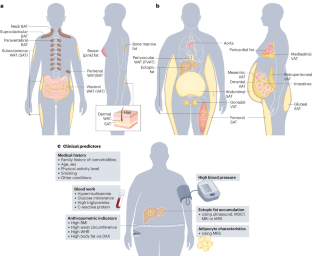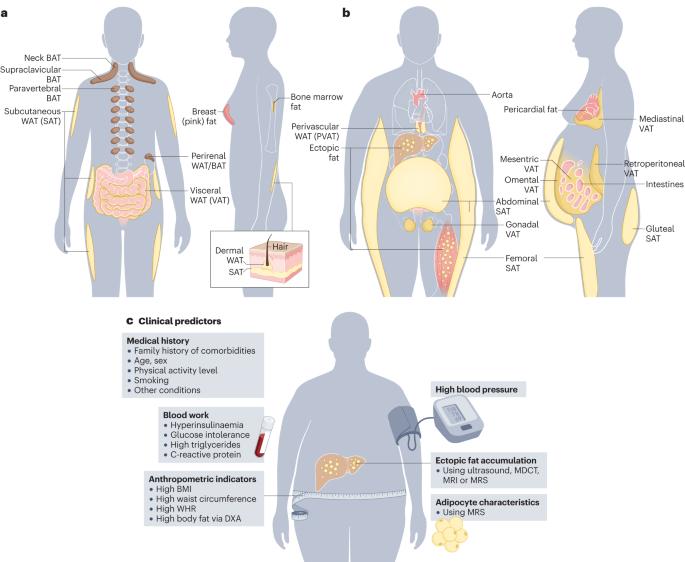White adipocyte dysfunction and obesity-associated pathologies in humans
IF 81.3
1区 生物学
Q1 CELL BIOLOGY
引用次数: 0
Abstract
The prevalence of obesity and associated chronic diseases continues to increase worldwide, negatively impacting on societies and economies. Whereas the association between excess body weight and increased risk for developing a multitude of diseases is well established, the initiating mechanisms by which weight gain impairs our metabolic health remain surprisingly contested. In order to better address the myriad of disease states associated with obesity, it is essential to understand adipose tissue dysfunction and develop strategies for reinforcing adipocyte health. In this Review we outline the diverse physiological functions and pathological roles of human white adipocytes, examining our current knowledge of why white adipocytes are vital for systemic metabolic control, yet poorly adapted to our current obesogenic environment. White adipose tissue serves a plethora of physiological functions, which are compromised in obesity. The mechanisms through which obese white adipose tissue contributes to pathologies including insulin resistance, dyslipidaemia, chronic inflammation, cancer and decreased fertility are emerging. In the future, these insights can be translated into novel drugs for obesity and obesity-associated diseases.


人类白色脂肪细胞功能障碍和肥胖相关病症
肥胖症和相关慢性疾病的发病率在全球范围内持续上升,对社会和经济造成了负面影响。虽然体重超标与罹患多种疾病的风险增加之间的关系已得到公认,但令人惊讶的是,体重增加损害我们新陈代谢健康的启动机制仍存在争议。为了更好地应对与肥胖相关的各种疾病,了解脂肪组织功能障碍并制定加强脂肪细胞健康的策略至关重要。在这篇综述中,我们将概述人类白色脂肪细胞的各种生理功能和病理作用,研究我们目前对白色脂肪细胞为何对全身代谢控制至关重要,但却不能很好地适应当前致肥环境的认识。
本文章由计算机程序翻译,如有差异,请以英文原文为准。
求助全文
约1分钟内获得全文
求助全文
来源期刊
CiteScore
173.60
自引率
0.50%
发文量
118
审稿时长
6-12 weeks
期刊介绍:
Nature Reviews Molecular Cell Biology is a prestigious journal that aims to be the primary source of reviews and commentaries for the scientific communities it serves. The journal strives to publish articles that are authoritative, accessible, and enriched with easily understandable figures, tables, and other display items. The goal is to provide an unparalleled service to authors, referees, and readers, and the journal works diligently to maximize the usefulness and impact of each article. Nature Reviews Molecular Cell Biology publishes a variety of article types, including Reviews, Perspectives, Comments, and Research Highlights, all of which are relevant to molecular and cell biologists. The journal's broad scope ensures that the articles it publishes reach the widest possible audience.

 求助内容:
求助内容: 应助结果提醒方式:
应助结果提醒方式:


